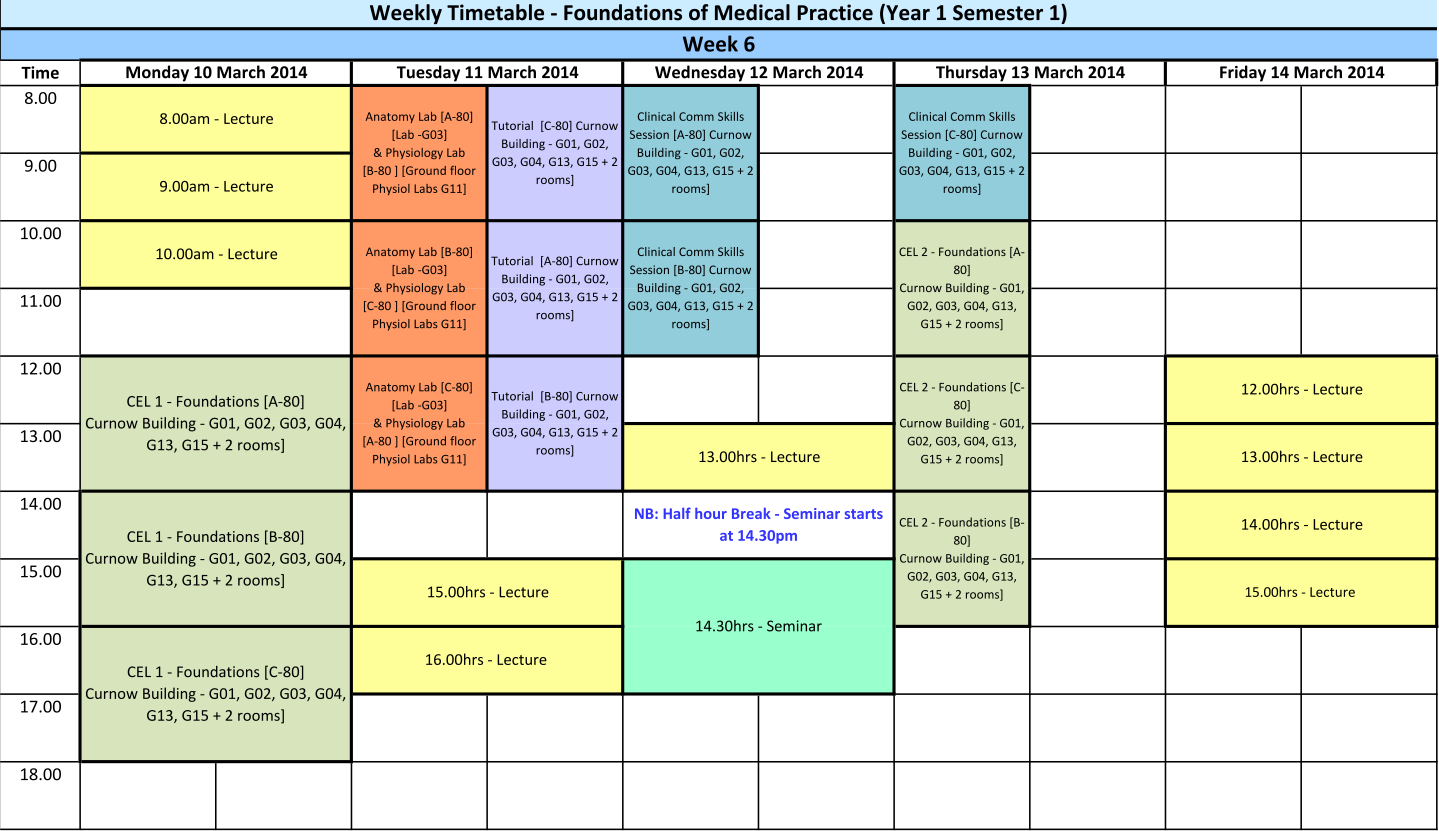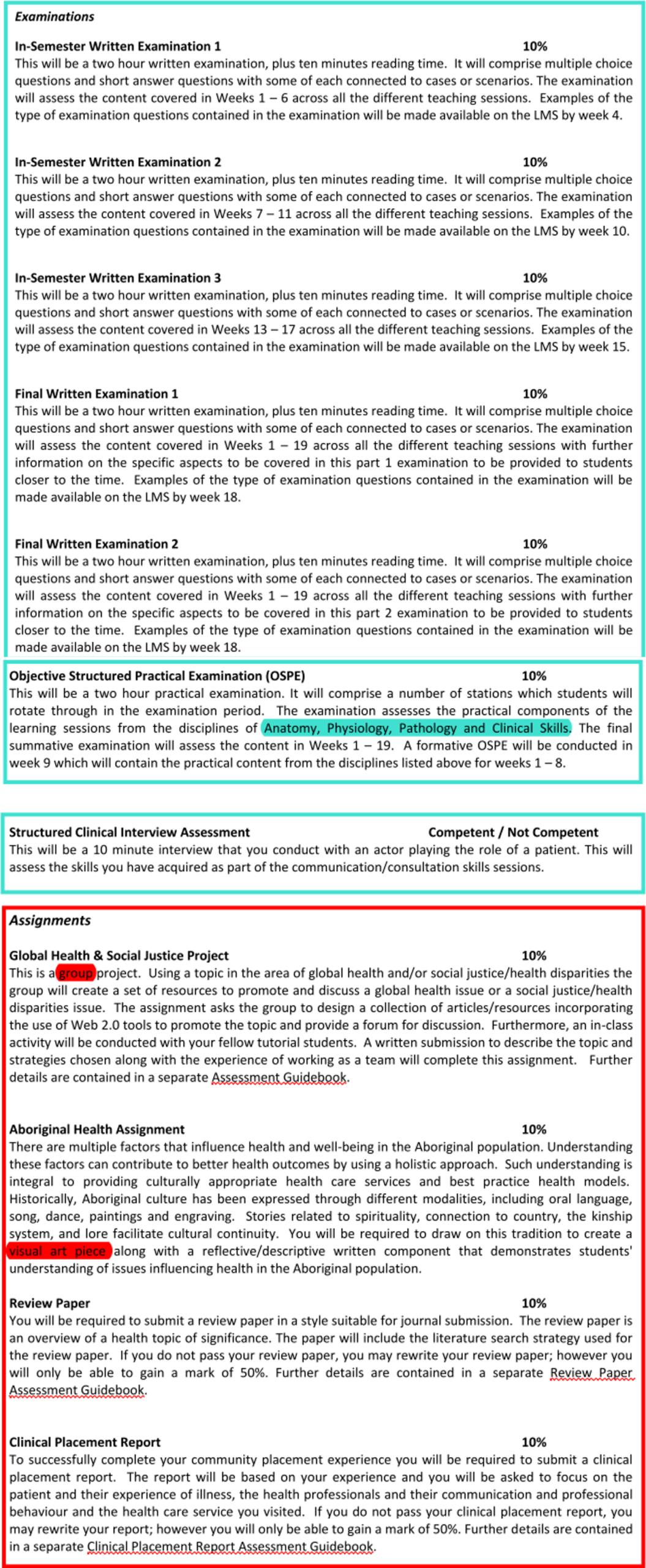ぼくの学年の医学生のほとんどは、
科学分野の学位を持っている。
でも、なかには、
科学を大学で勉強したことが無い
弁護士や実業家などもいる。
そんなさまざまな学歴を持つ医学生に
同じスタートラインにたってもらうために、
1年生の前期は
Foundations of Medical Practiceと呼ばれる
コースが課される。
コースの概要は以下の通りである。
Foundations of Medical Practice
The Doctor of Medicine (MD) course is based around six themes of Professional, Leader, Advocate, Clinician, Educator and Scholar (PLACES). The content for this unit introduces students to the basics of medical practice in each of these themes. Students cover the introductory concepts of the biomedical sciences of anatomy, physiology, biochemistry, genetics, pharmacology and pathology. The teaching progresses from molecules, cells, tissues to organs with introduction to gross anatomy, histology, cell structure and function. The generic concepts of physiology, principles of pathology and concepts of pharmacogenetics and pharmacokinetics. There is an introduction to embryology, cell differentiation and development and growth of tissues. Students are also introduced to epidemiological, social and behavioural sciences including learning of communication skills within medical practice and introduction to the medical consultation and history-taking. The concepts of epidemiology, medical research and evidence-based practice are introduced along with the opportunity to discuss the main issues in social determinants of health, global health, mental health, healthcare systems and health economics. Students have opportunities to develop their information literacy skills as applied to medicine. Introduction to professional aspects of medical practice include professional behaviours, medical law and ethics, leadership and teamwork, collaborative practice, educational theory and practice, diversity within medicine, and Aboriginal health. Students are able to (1) demonstrate professional behaviour and self-care principles, define some bioethical and medicolegal issues; (2) discuss leadership, collaborative practice and health systems; (3) explain historical and sociocultural factors on Aboriginal health care, understand the principles of health advocacy, describe factors contributing to health disparities and describe some strategies for health maintenance and promotion; (4) demonstrate generic knowledge of relevant normal and abnormal structure, function, behaviour and development, knowledge of epidemiological concepts, elements of the patient interview and communication skills, perform some procedural skills, explain the use of some therapies, recognise the elements of quality health care; (5) identify principles of learning, mentoring and patient education, apply adult learning educational principles; and (6) have a basic understanding of research, biostatistics, evidence-based practice and demonstrate the ability to access, evaluate and organise a range of information resources. The learning is by lectures, seminars, laboratories, online resources, small-group tutorials, clinical experiences with simulations and in real clinical environments, and case-enhanced learning.
時間割は大体こんな感じである。
Foundations of Medical Practiceの成績は、筆記試験、提出課題そして実技臨床試験の成績によって決まる。具体的な内容は以下のようになっている。
西オーストラリア大学の医学部は、
学部の勉強をパスしただけでは卒業ができないようになっている。
医学生たちは
課外活動に積極的に参加することが義務付けられており、
定期的にどんな活動をしているのかが審査され、
基準に満たない生徒は、
学部の成績が100点であっても進級できないようになっている。
どのような活動をするのかは、
PLACESのところで説明していく。
追記:この追記を2年生になって書いていますが、Foundations of Medical Practiceの時ほど、勉強をたくさんして精神的ストレスを感じたことはありません。医学部生の鬱罹患率が高いという事実を体感できる1年でした。ただ、苦しみながら試行錯誤していると、やっぱり光は見えてくるものです。これからさらに大変だと思いますが、なんとか苦しみながら前に進んで行こうと思います。一年生のときにあきらめなかった自分自身に感謝。



